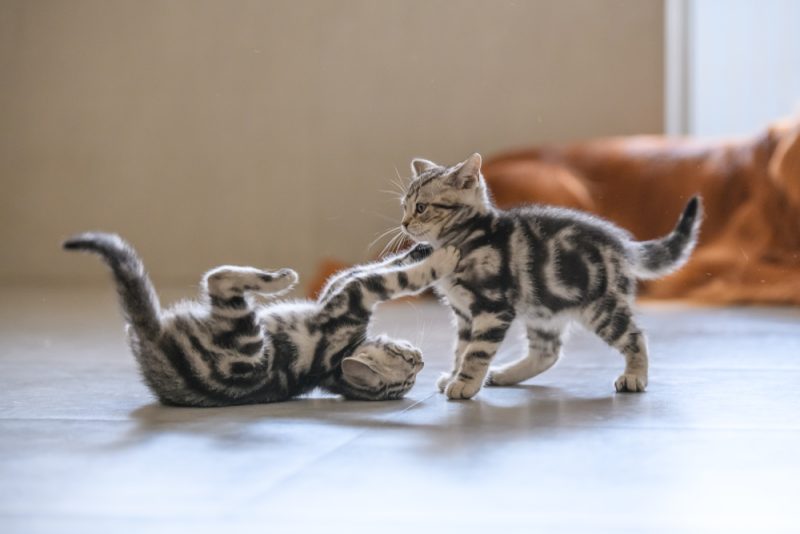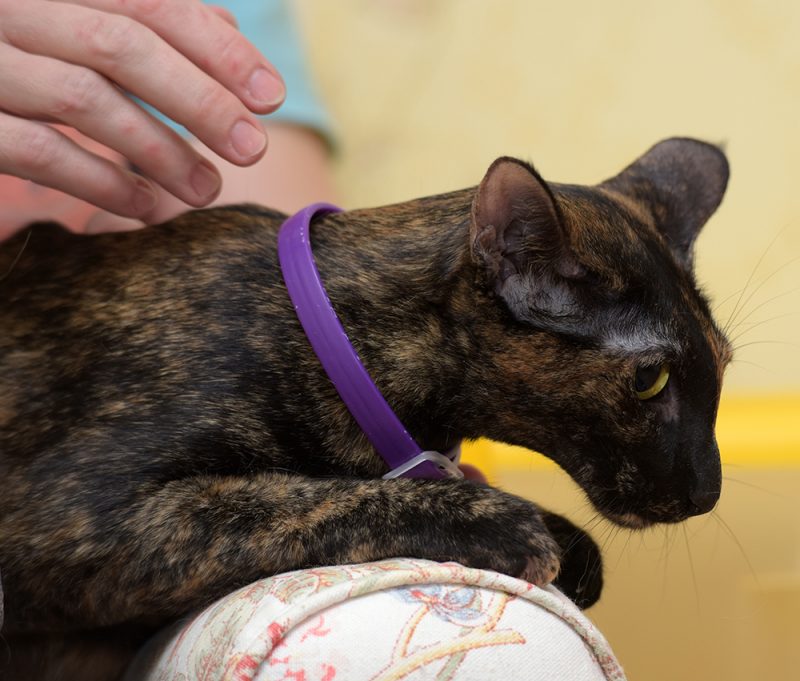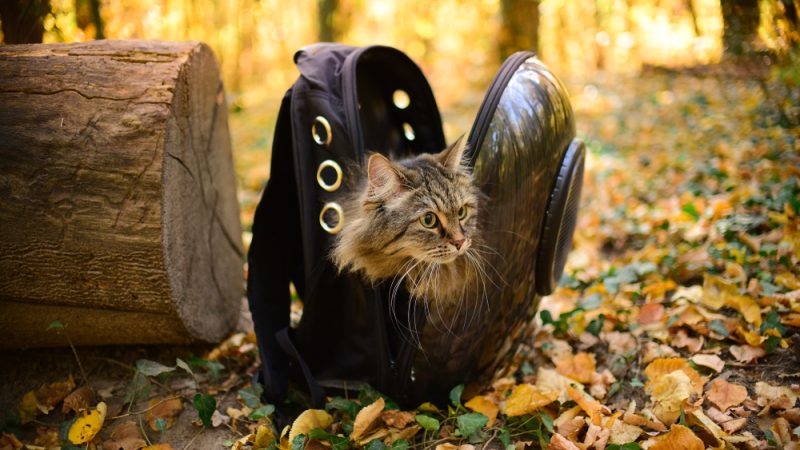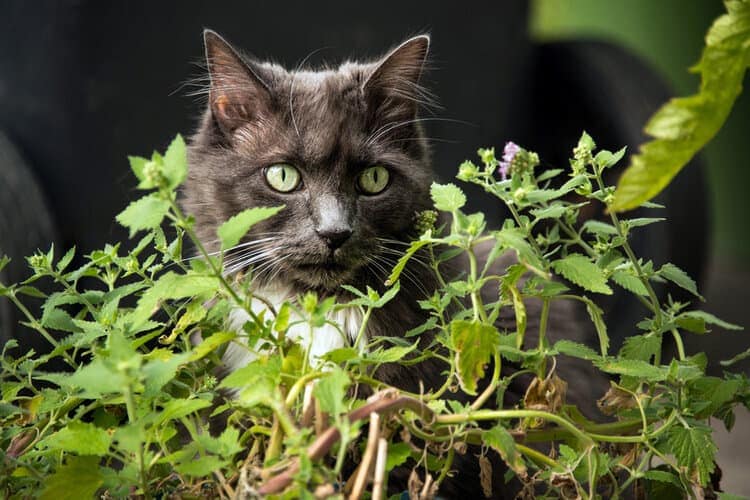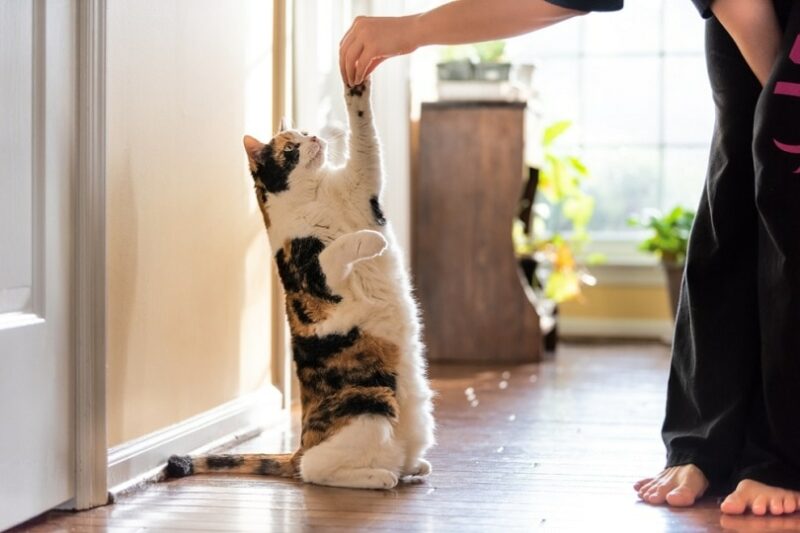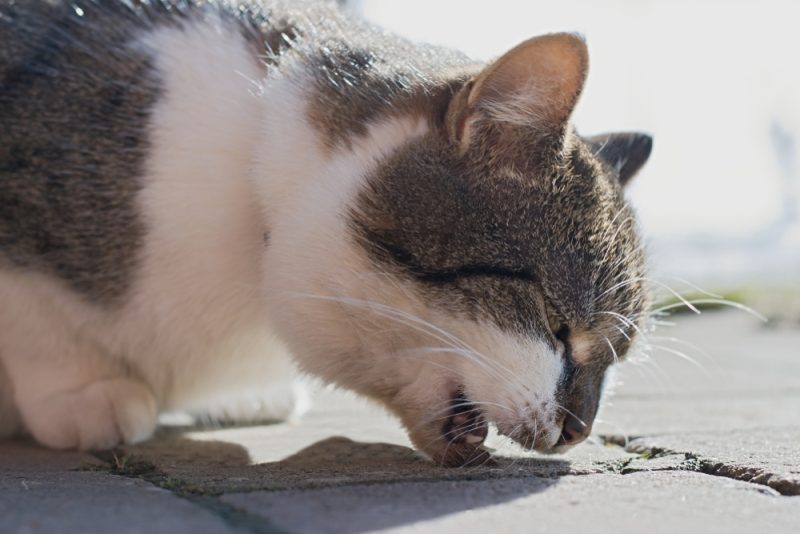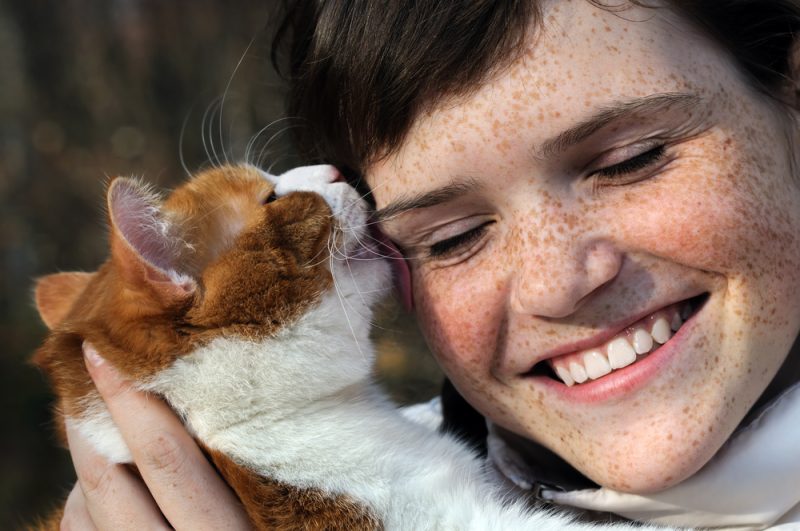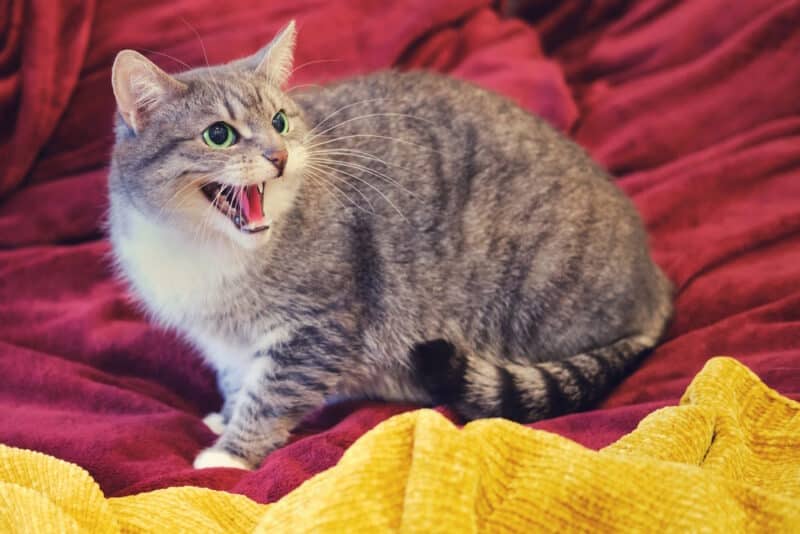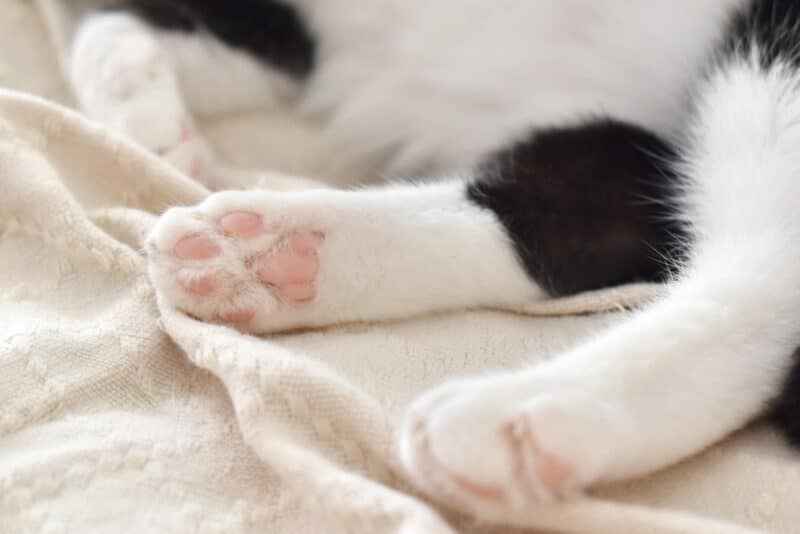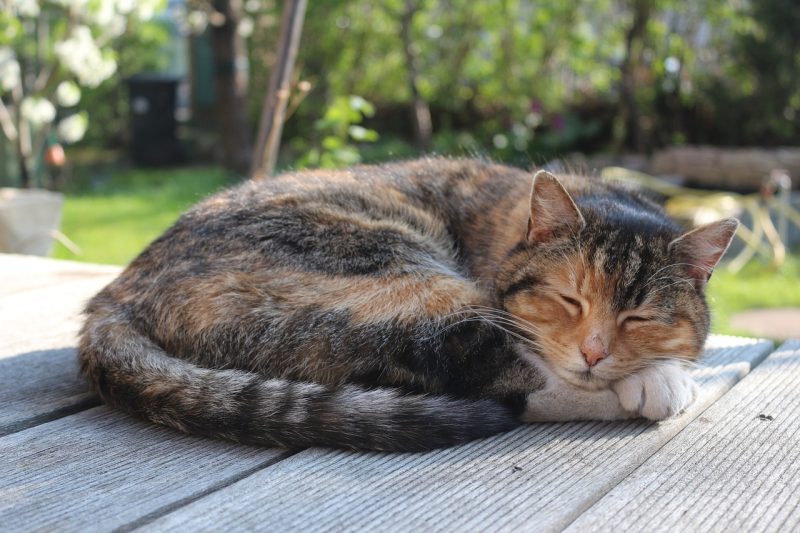It’s not uncommon for new cat owners to be surprised by their kitten’s aggressive behavior. Kittens are wild creatures still learning about the world, and they’re unaware that their pouncing and bouncing can inflict pain. While it might seem cute and playful initially, it can quickly become a concern if it escalates. So why do some kittens act aggressively?
We’ll discuss six reasons your kitten might act aggressively and provide tips on managing the behavior.

The 6 Reasons Why Your Kitten is Aggressive
1. Play Aggression
Play aggression is one of the most common reasons for aggressive behavior in kittens. It occurs when kittens learn to stalk, pounce, and capture prey. Although it’s a natural part of their development, it can sometimes escalate into more aggressive actions.
To prevent play aggression from becoming problematic, provide your kitten with plenty of toys and engage in regular play sessions to help them burn off energy and satisfy their hunting instincts.
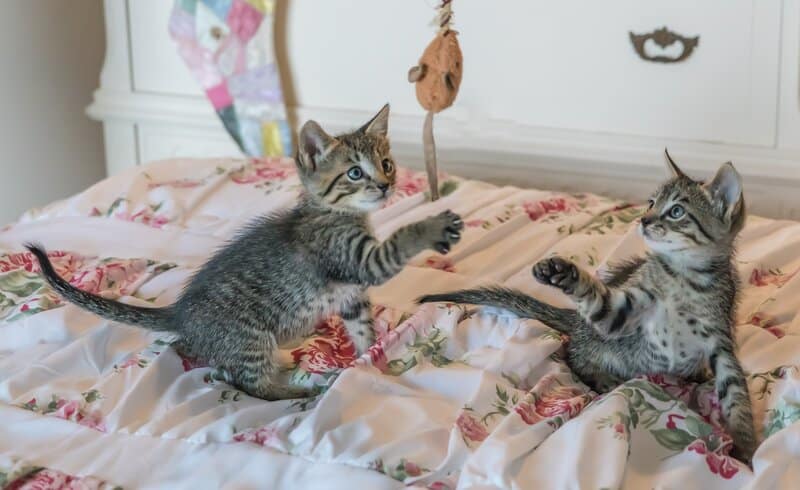
2. Overstimulation
Kittens can become overstimulated when they receive too much attention or are exposed to an overwhelming environment. When this happens, they may respond with aggression to cope.
If you want to get overstimulation under control, you should know that prevention is the key. Pay attention to your kitten’s body language and learn to recognize when they’ve had enough. Give them a quiet, calm space where they can retreat and avoid exposing them to excessive noise or other stressors.
3. Fear or Anxiety
Fear and anxiety can also cause aggressiveness in kittens. It can happen if they feel threatened or unsure of their environment. Therefore, providing a safe, secure space for your kitten to explore and acclimate is essential.
Avoid sudden movements, loud noises, or anything that might scare them. If you think fear or anxiety might be causing your kitten’s aggression, work on building their confidence through positive reinforcement and gradual exposure to new experiences.

4. Territorial Behavior
As cats age, they may become territorial, which can manifest as aggression. This is particularly common in kittens who haven’t been socialized with other animals, such as those who were hand-raised.
To reduce the risk of territorial aggression, socialize your kitten with other pets and humans early on. Provide them with plenty of opportunities to explore and mark their territory on scratching posts and other designated areas.
5. Medical Issues
Aggressive behavior can sometimes be a sign of an underlying medical issue. Pain or discomfort can cause a kitten to lash out, even if they’re usually well-behaved. If your kitten’s aggression seems sudden or uncharacteristic, it’s essential to consult a veterinarian to rule out potential health problems.
They can recommend treatments or solutions that can help alleviate your kitten’s discomfort and reduce their aggressive tendencies.
If you need to speak with a vet but can't get to one, head over to PangoVet. It's an online service where you can talk to a vet online and get the advice you need for your pet — all at an affordable price!

6. Learned Behavior
Lastly, kittens may start acting aggressively if they’ve learned it from other cats or their previous experiences, perhaps it is even you who inadvertently is teaching them that aggression is acceptable. For example, if a kitten has been separated from their mother too early, they may not have learned the proper social skills.
In those cases, it’s crucial to be patient and consistent in your training efforts. Reward good behavior and gently discourage aggression by withdrawing when it occurs. Over time, your kitten should learn more appropriate ways to interact.

Tips for a Healthy Kitten Environment
Creating a healthy environment for your kitten prevents aggressive behavior and ensures their overall well-being. Here are some tips to help you provide a nurturing space for your feline friend:
- Provide Plenty of Toys and Activities: Ensure your kitten has several toys and activities to stimulate them mentally and physically. This can curb aggressive behavior by channeling their energy into play and exploration.
- Offer a Safe Space: Create an area where your kitten can go when they need some alone time. This can help reduce stress and anxiety, which can contribute to aggressive behavior.
- Proper Socialization: The “kitten socialization window” is a critical developmental period in a kitten’s life, typically occurring between 2 to 7 weeks of age. Introducing your kitten to a variety of people and pets in a controlled and positive environment during this period is essential for fostering a well-adjusted and confident cat.
- Desensitization: Gradual exposure to new experiences helps build their confidence and can prevent issues such as territorial behavior or fear-based aggression later in life.
- Maintain a Consistent Routine: Establish a daily routine for feeding, playtime, and sleep. Consistency can help your kitten feel more secure, reducing the likelihood of aggressive behavior.
- Opportunities to Express Natural Behavior: Provide scratching posts or pads for your kitten to satisfy their instinct to scratch. This can help prevent destructive behavior and reduce the chance of territorial aggression.
By implementing these tips and maintaining a healthy, stimulating environment for your kitten, you can reduce aggressive behavior and establish a strong, loving bond with your furry companion.
While some cats have no trouble getting in their daily dose of exercise via the zoomies, others require a bit more encouragement to get active. The innovative Hepper Hi-Lo Cat Scratcher offers a 3-position design that provides cats with a variety of levels to play on, each engaging their full body and muscles. The durable cardboard scratching pad is an enticing cat-friendly place to climb, stretch, and claw, fulfilling their instinctual need to scratch.
If you are looking to improve your cat's health and increase their energy, check out the Hepper Hi-Lo Cat Scratcher. At Catster, we’ve admired Hepper for many years, and decided to take a controlling ownership interest, so that we could benefit from the outstanding designs of this cool cat company!

Conclusion
Understanding the reasons behind your kitten’s aggressive behavior is the first step in addressing it. By providing a safe environment, appropriate socialization, and consistent training, you can help your kitten develop into a well-adjusted, loving companion.
Be very careful and analytical about your kitten’s behavior before you reinforce them with attention, treats, or toys, analyze your behavior as well, you are an important part of this equation. Remember that patience and persistence are vital, and don’t hesitate to seek professional help if you’re struggling to manage your kitten’s aggression.
Featured Image Credit: Chendongshan, Shutterstock
